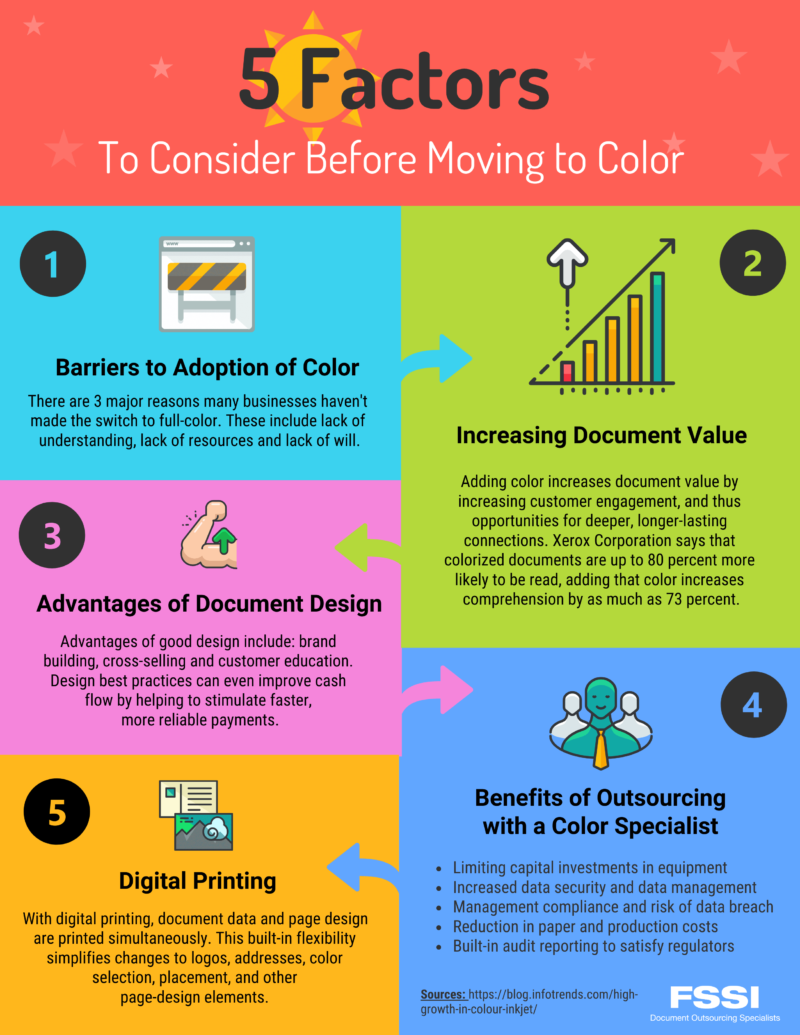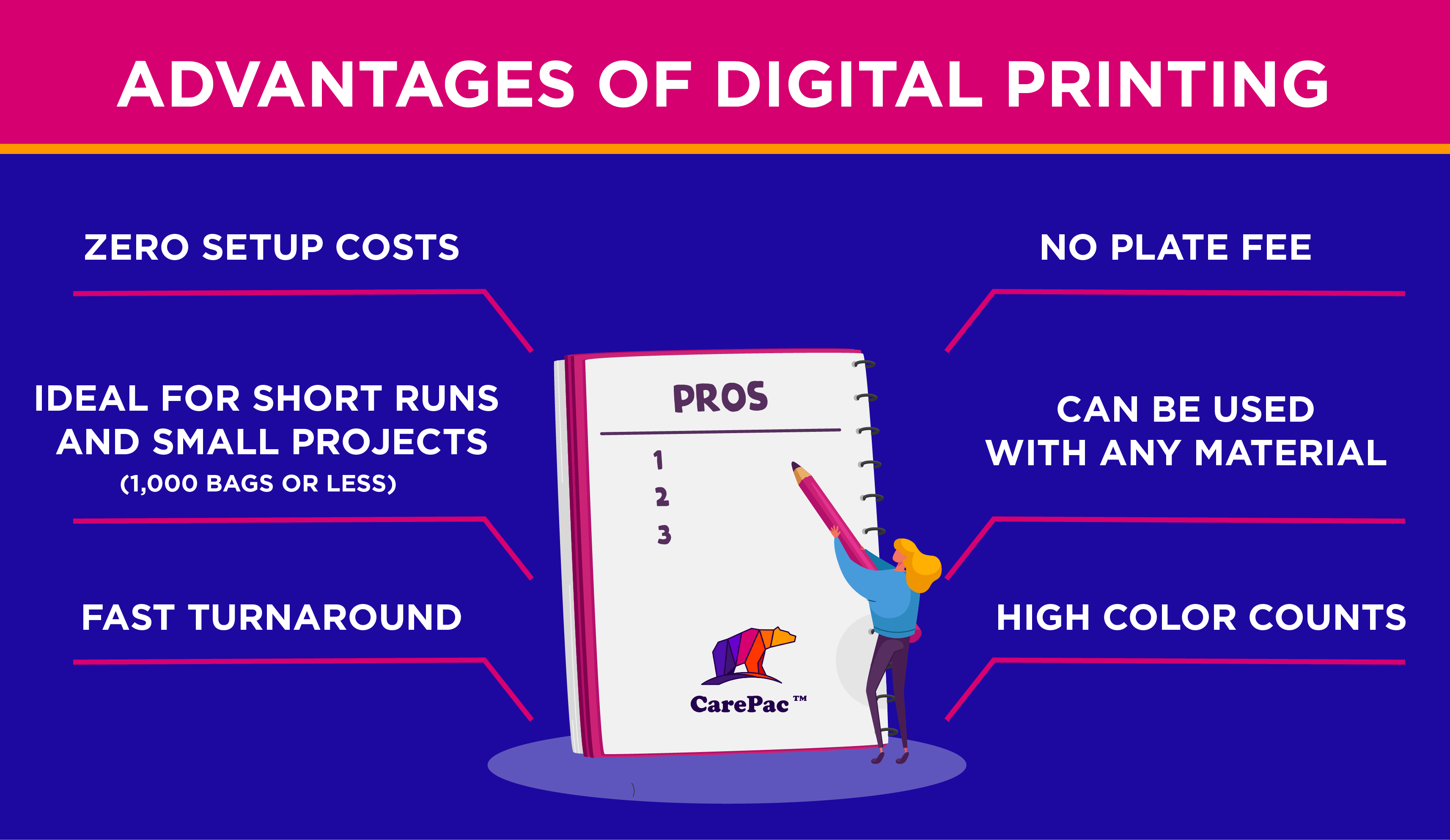What Does Digital Printing Mean?
What Does Digital Printing Mean?
Blog Article
Digital Printing - Questions
Table of ContentsThe Basic Principles Of Digital Printing Our Digital Printing PDFsThe 25-Second Trick For Digital PrintingDigital Printing for DummiesDigital Printing Can Be Fun For EveryoneThe Best Guide To Digital Printing
Variable information printing, such as direct mail with customized codes and addresses, is preferably matched for digital printing. Digital quick printing just needs 4 steps of design, testimonial, printing and binding to get every little thing done. Digital quick printing has an unmatched advantage: print on demand.According to PMMI, digital printing enables brand names and suppliers to react rapidly to consumer demands while enhancing the supply chain, decreasing warehousing price and waste, and appreciating faster time to market. That all noises fantastic, yet just how does this technology do all that? The major differentiator of these technologies is that there are no set up fees and no plates with digital printing.
Digital Printing Things To Know Before You Get This
According to Wikipedia, the best difference between digital printing and traditional approaches such as lithography, flexography, gravure, or letterpress - Digital Printing is that there is no requirement to change printing plates in electronic printing, whereas in these analog printing approaches home plates are repetitively replaced. This causes quicker turnaround time and decreases cost when making use of digital printing.
Digital printing is very flexible, so it's easy to make adjustments to the bundle style rapidly. It all goes back to the plates.
With conventional printing techniques, short-run printing is just not possible. Because a great style can make or damage your item, electronic printing consistently develops top quality, clear and colorful graphics each time.
Digital printing is the process of printing digital-based images straight onto a selection of media substratums. There is no demand for a printing plate, unlike with balanced out printing. Digital data such as PDFs or desktop posting documents can be sent directly to the electronic printing machine to print theoretically, photo paper, canvas, material, synthetics, cardstock and various other substratums.
See This Report about Digital Printing
According to PMMI, electronic printing enables brand names and producers to react quickly to consumer needs while improving the supply chain, reducing warehousing cost and Related Site waste, and delighting in faster time to market. That all audios wonderful, yet how does this modern technology do all that? The significant differentiator of these innovations is that there are no set-up costs and no plates with digital printing.
This results in quicker turnaround time and decreases expense when utilizing electronic printing.

Not known Factual Statements About Digital Printing
With standard printing methods, short-run printing is just not possible. Since right here a wonderful design can make or break your product, digital printing constantly creates high-grade, clear and colorful graphics each time.

According to PMMI, digital printing enables brands and producers to react swiftly to customer demands while enhancing the supply chain, decreasing warehousing price and waste, and appreciating faster time to market. That all sounds excellent, however how does this modern technology do all that? The significant differentiator of these technologies is that there are no set-up costs and no plates with electronic printing.
Digital Printing Fundamentals Explained
According to Wikipedia, the best distinction in between electronic printing and traditional techniques such as lithography, flexography, gravure, or letterpress is that there is no demand to Your Domain Name replace printing plates in electronic printing, whereas in these analog printing approaches home plates are repetitively replaced. This results in quicker turn-around time and lowers cost when using digital printing.
Speedy manufacturing means getting your item to market much faster. It likewise suggests it's easier and faster to make changes in the future, when you alter a dish, add a SKU, or develop seasonal packaging. Digital printing is highly flexible, so it's simple to make modifications to the plan design swiftly. All of it returns to home plates.

An Unbiased View of Digital Printing
Digital printing is the procedure of printing digital-based images directly onto a selection of media substrates. There is no need for a printing plate, unlike with offset printing. Digital data such as PDFs or desktop computer posting files can be sent out straight to the electronic printing press to print on paper, photo paper, canvas, textile, synthetics, cardstock and other substratums.
Report this page